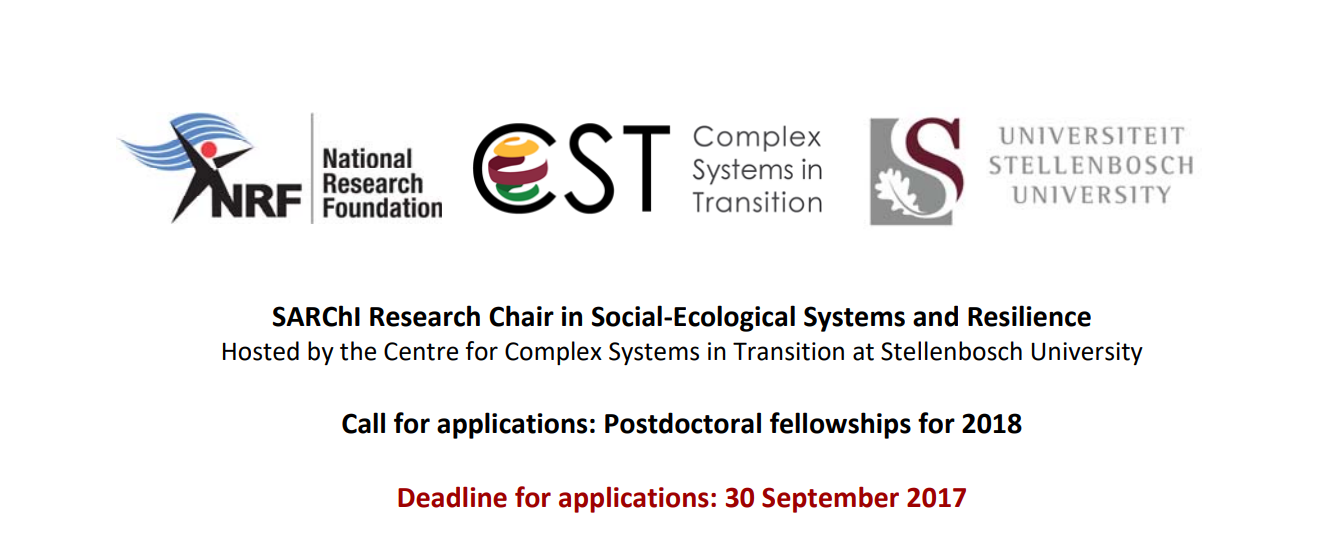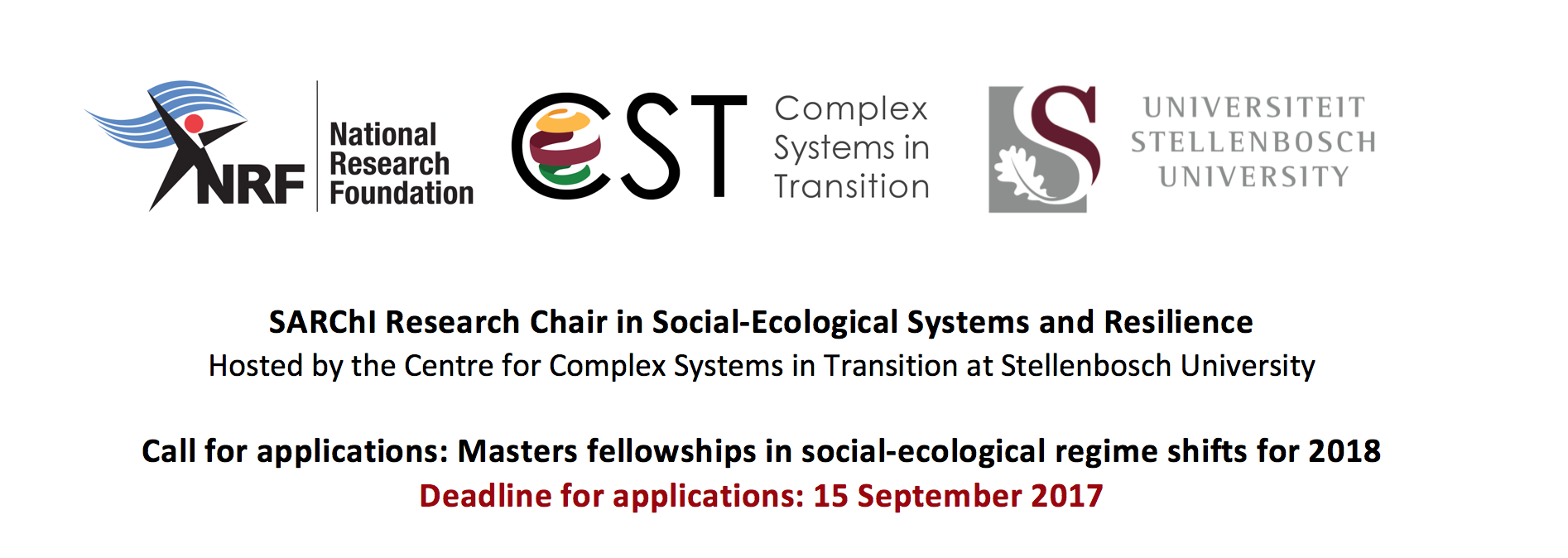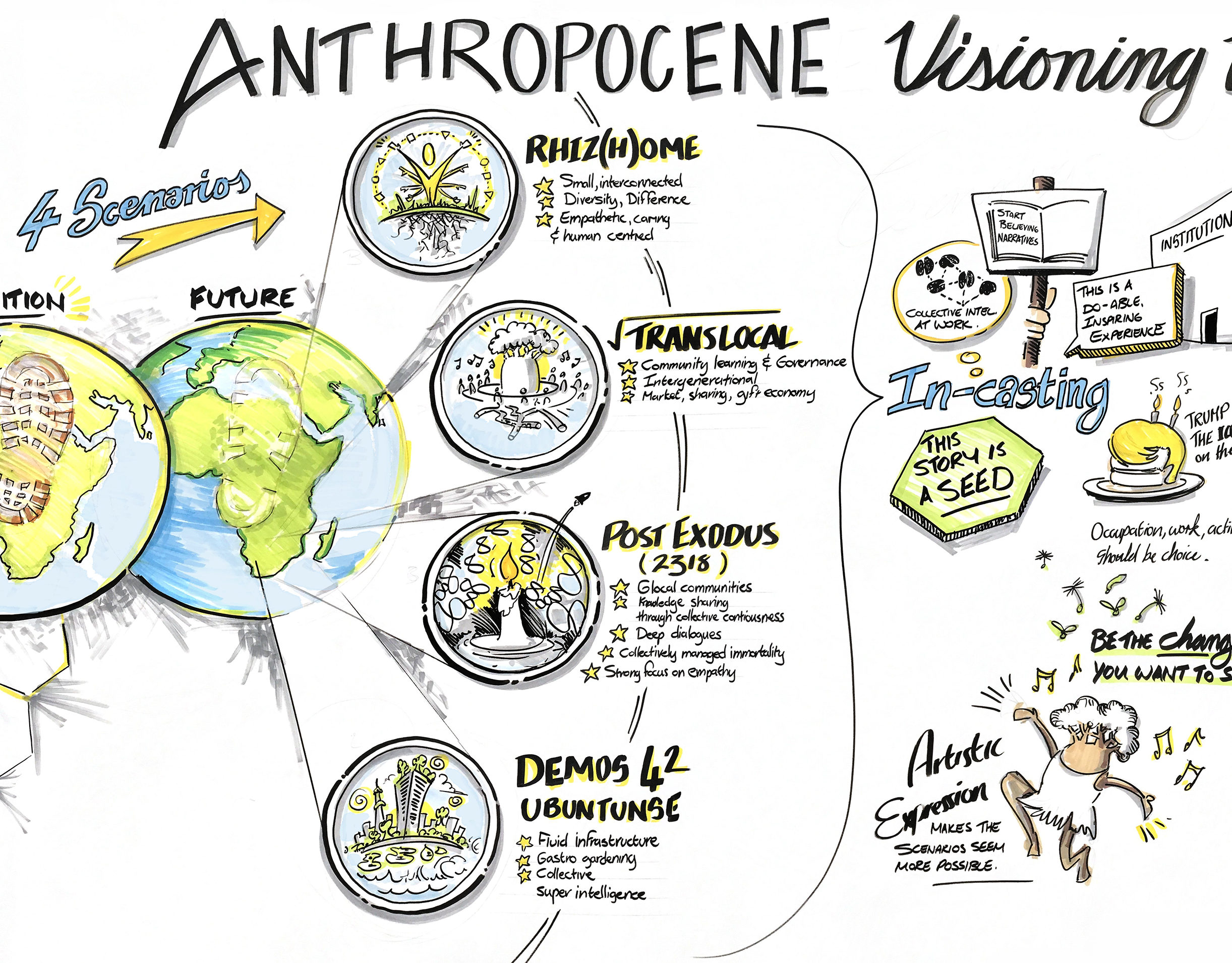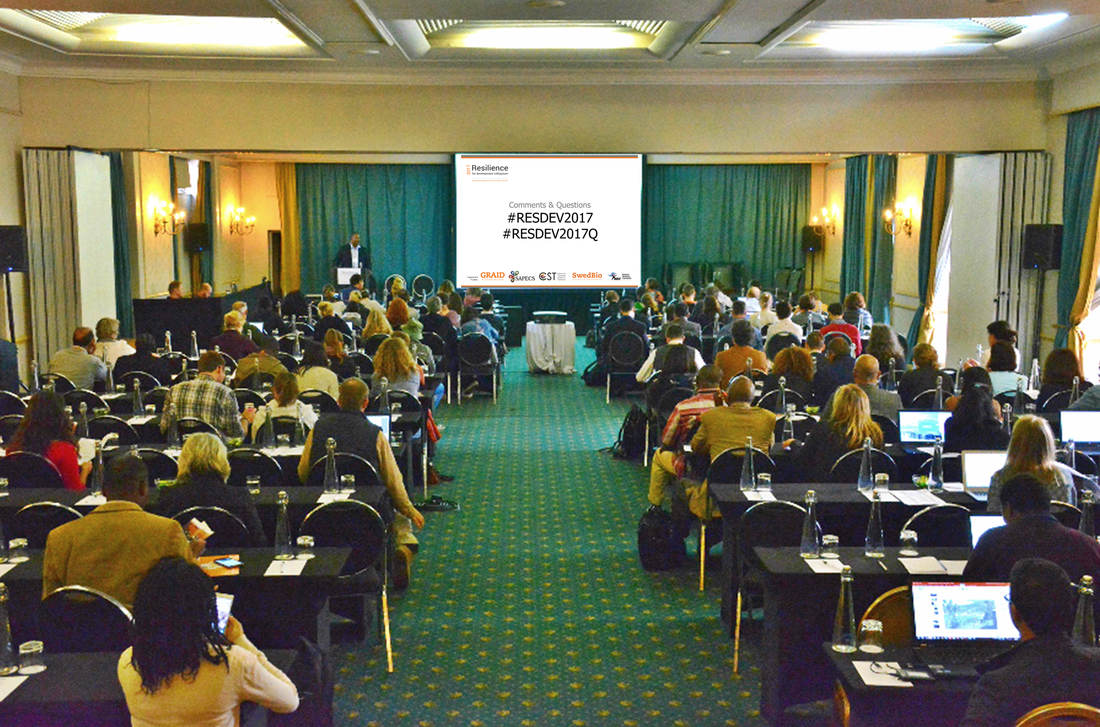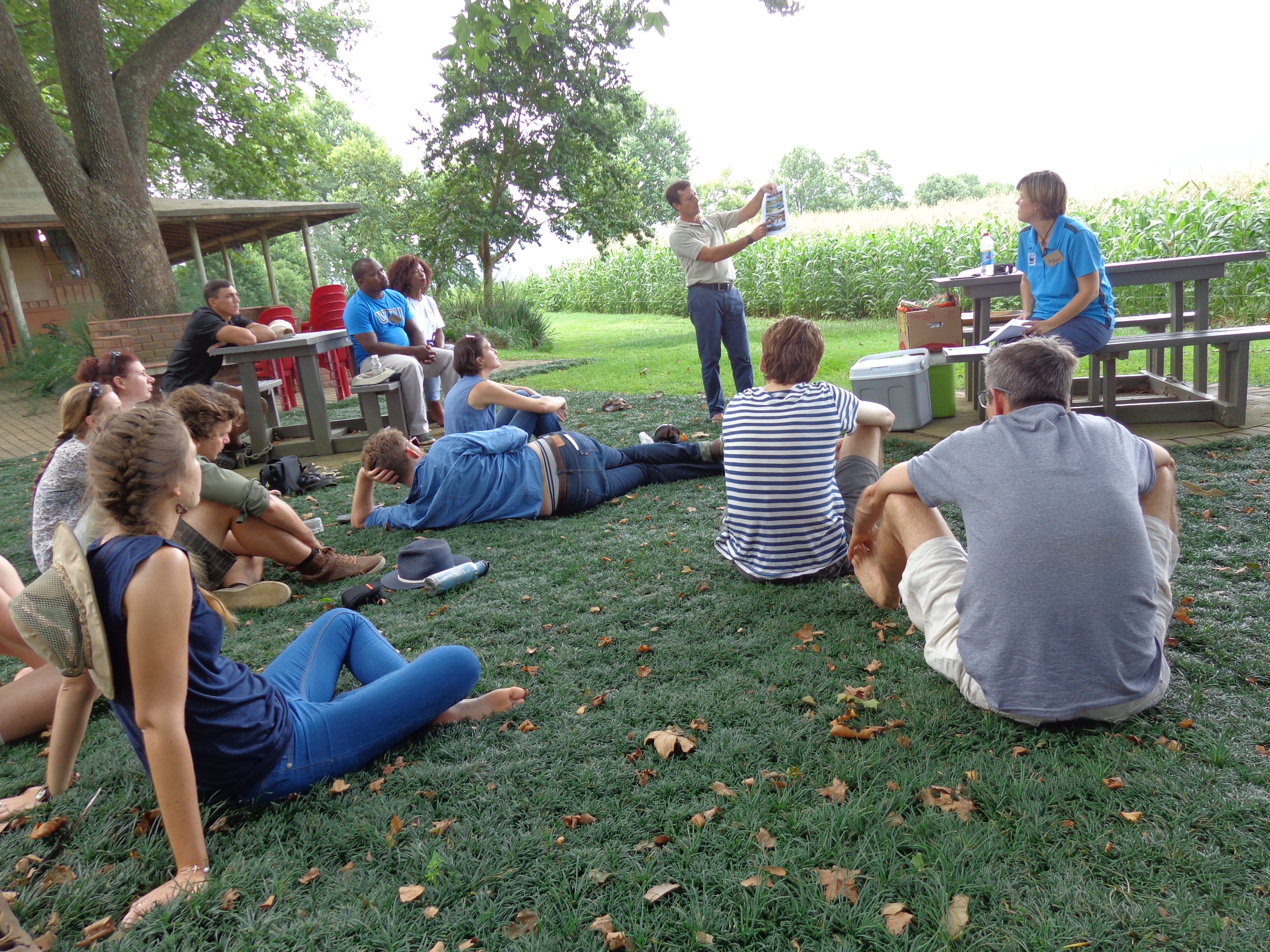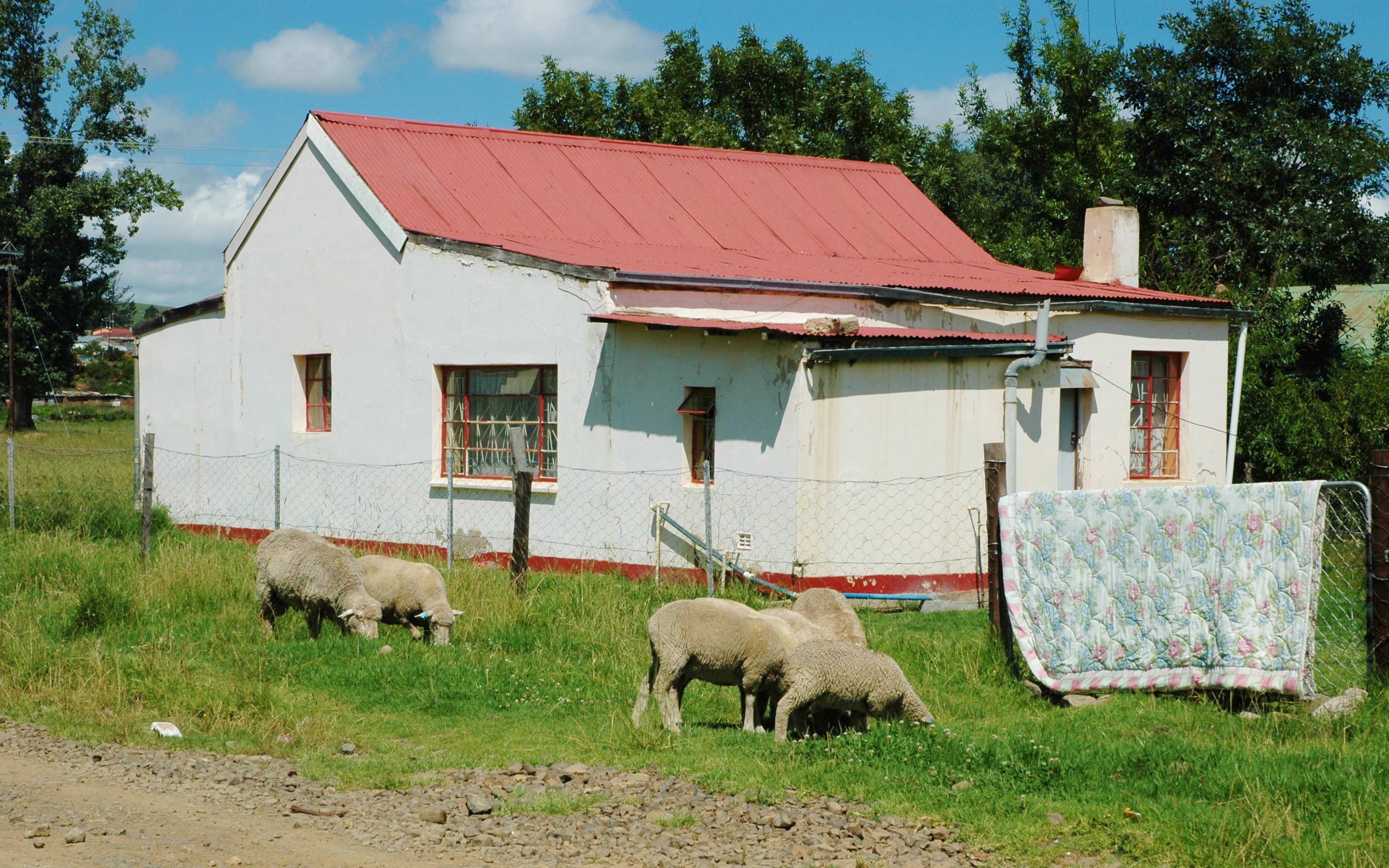Postdoctoral fellowship at the CST, Stellenbosch University
Escalating global challenges such as climate change, food and water security, biodiversity loss, socio‐political conflict and economic volatility, demand new approaches to researching and governing our environment and societies. Approaches that account for the complex relationships between human well‐being and ecological sustainability, while dealing with ongoing change and uncertainty, have become critical. It is increasingly apparent that fundamental reorganization of our societies is necessary to achieve a just society for all, while maintaining the environmental conditions that underlie human prosperity. Navigating such a transformation will require a capacity to deal with changes that are fundamentally unknown and unpredictable ‐ a capacity that is central to resilient systems. Building resilience of intertwined social and ecological systems is therefore increasingly regarded as essential to enabling sustainable development at local to global scales, and is a rapidly emerging research area worldwide. The South African Research Chair in Social‐Ecological Systems and Resilience, held by Dr Reinette (Oonsie) Biggs, aims to contribute to this area specifically from a southern African perspective. The Chair is hosted by the newly established Centre for Complex Systems in Transition (CST) at Stellenbosch University. The CST builds on a strong history of transdisciplinary research and complexity studies, and hosts several leading scientists and [...]


